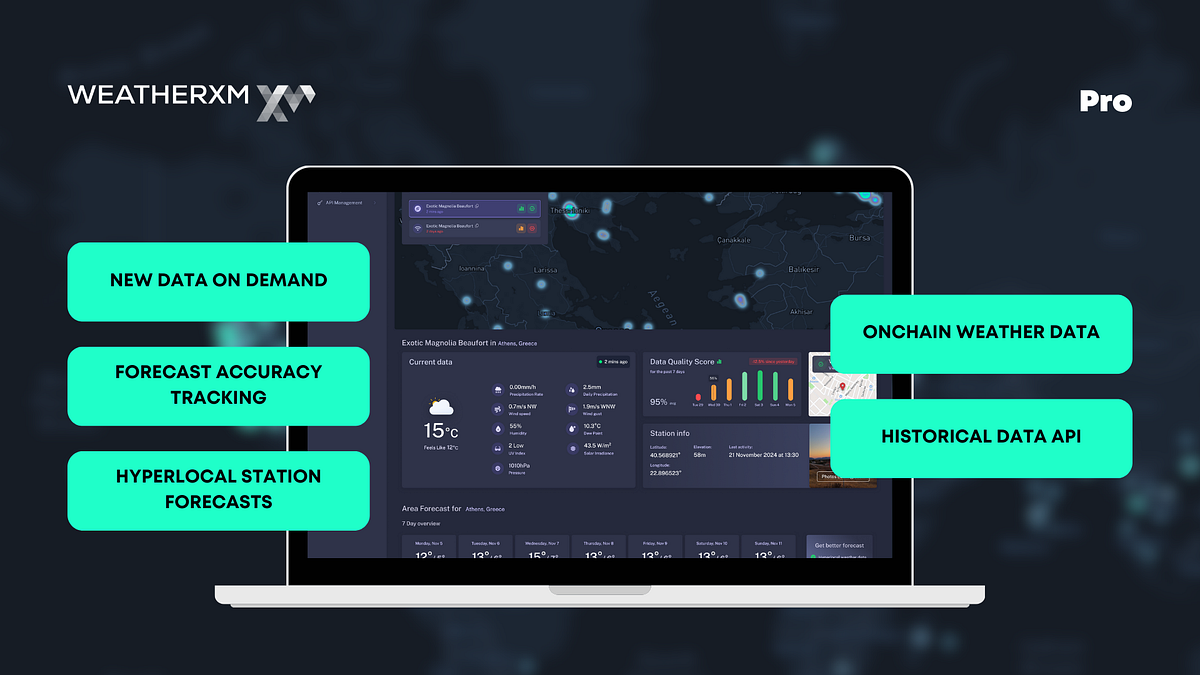Introducing WeatherXM Pro: Revolutionizing Access to Hyperlocal Weather Data

WeatherXM Pro is an innovative weather API platform designed to enhance the demand side of the $WXM economy by providing access to hyperlocal weather data. With a network of over 8,000 weather stations globally, WeatherXM Pro allows users to pull raw data and improve forecasting models. This platform is particularly beneficial for meteorological companies and local communities, especially in underserved regions like Africa and Latin America, where accurate weather data is essential for preparing for extreme weather events. The initiative aims to bridge the gap between on-chain and off-chain data, making weather information more accessible and reliable.
One of the standout features of WeatherXM Pro is its ability to deploy weather stations in areas lacking infrastructure, using strategies like the Cell Bounty program. This program incentivizes users to stake $WXM tokens in specific locations to gather data, thus expanding coverage in regions where demand is high. Additionally, the platform offers Forecast Accuracy Tracking (FACT), which aggregates data from over 40 meteorological models to evaluate their performance against real-world observations. This feature ensures that users receive the most accurate forecasts tailored to their specific locations, enhancing the reliability of weather predictions.
Moreover, WeatherXM Pro integrates on-chain weather data, utilizing specialized hardware that includes cryptographic proofs. This allows the data to be used in prediction markets and weather derivatives, such as parametric weather insurance. The API component of WeatherXM Pro enables developers to easily access and integrate high-quality weather data into their applications, providing tools for monitoring weather trends, historical observations, and forecasts. Overall, WeatherXM Pro represents a significant advancement in the accessibility and accuracy of weather data, catering to various industries and communities worldwide.
Related News





